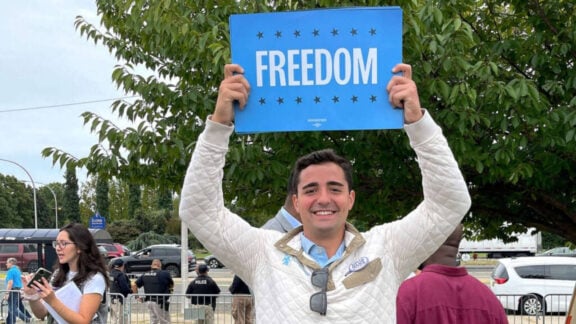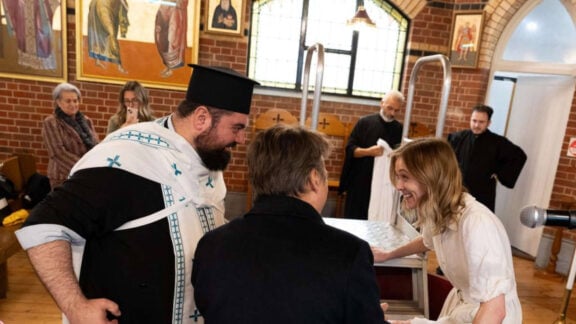As of last week the makeshift Idomeni camp on Greece’s northern border with FYROM is being evacuated.
More than 8,000 refugees are being rushed to processing facilities south of Thessaloniki by riot police. The operation is expected to last not more than two weeks.
Marianna Fotaki, Professor of Business Ethics at Warwick Business School is a member of the Centre for Health and Public Interest and has visited a number of refugee camps in Greece.
“After visiting refugee settlements in Lesvos and Piraeus and speaking to people helping the refugees,” she tells Neos Kosmos, “it is clear to me that the EU and Greek government are failing to provide even basic necessities to the thousands of people who have been used to deter further arrivals from Turkey.”
“The EU’s leaders bear direct responsibility for this appalling treatment of people who have nowhere else to turn.”
According to Professor Marianna Fotaki, more than 10,000 people have been surviving for months in the open fields near the border between Greece and FYROM, mostly through the help of volunteers and the local population.
“Many innocent people who have tried to flee to safety are locked in prison-like facilities and others who are vulnerable are left uncared for. Treating refugees as people whose essential human needs are somehow of lesser value than our own sets a dangerous precedent.”
Volunteers saw women with their newborn babies returning from hospital to the tents in the Piraeus port. The disabled and those with war-related post-traumatic stress disorders have to endure living in subhuman conditions,” she stresses.
Meanwhile, the responses of the inhabitants in Lesvos and other Greek islands to the arrivals of hundreds of thousands of refugees and migrants have varied. Populations comprising higher numbers of descendants of refugees have been more receptive on the whole. But in general, witnessing extreme human distress has mobilised selfless and often heroic actions by Greek inhabitants of the islands.
“In my fieldwork, I’ve found that displays of empathy and compassion had a contagious effect on behaviours of entire communities,” observes anthropologist Henrietta Moore, highlighting that governments have tried to depoliticise volunteering by professionalising it in order to control “subversive modes of sociality” by solidarity organisations assisting refugees.
“This strategy has now been extended to attacking and criminalising independently minded volunteer organisations and citizens.
“By undermining grassroots solidarity and locking up the hapless people as hostages of the European ‘success story’, the left-leaning Syriza government has turned into an enforcer of the EU’s brutal refugee policies.”








